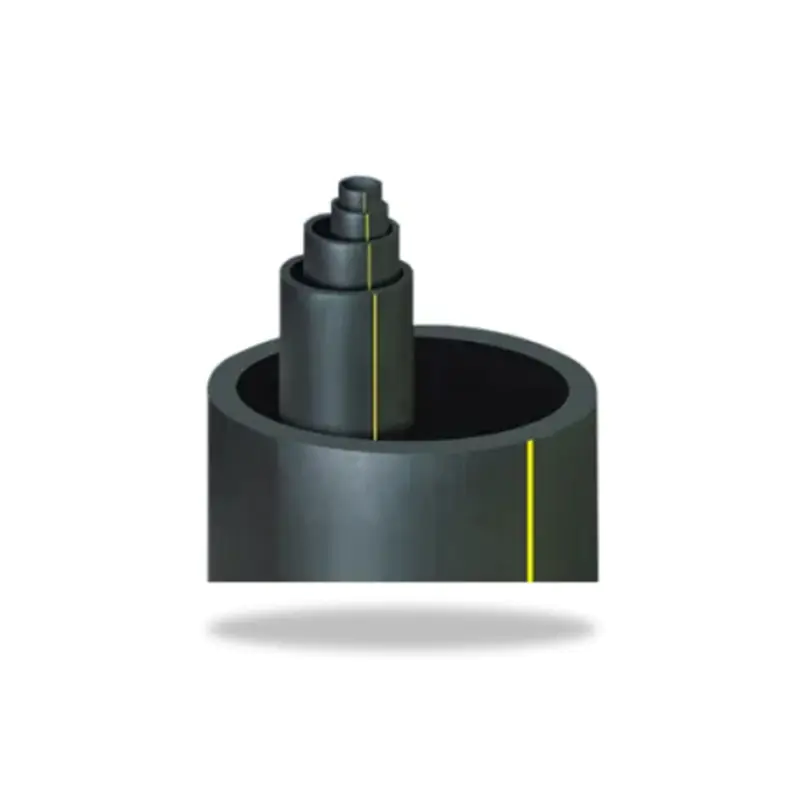HDPE (High-Density Polyethylene) pipes have several key properties that make them particularly suitable for natural gas transportation. These properties contribute to their performance, safety, and durability in gas distribution systems. Here are the key properties:
Corrosion Resistance: HDPE pipes are highly resistant to corrosion, which is crucial for transporting natural gas since they are less likely to degrade or weaken over time due to chemical reactions with the gas or surrounding soil.Resistance to Chemicals: HDPE can withstand exposure to various chemicals and substances that might be present in the soil or the gas itself, reducing the risk of pipe deterioration.
Impact Resistance: HDPE pipes are known for their toughness and ability to absorb impacts without cracking. This flexibility helps them resist physical damage during installation and in service.Flexibility: The flexibility of HDPE allows it to be installed in various soil conditions and to accommodate ground movements without cracking or breaking.

Gas Tightness: HDPE has a low permeability to gases, which minimizes the risk of gas leakage through the pipe material. This property is essential for maintaining the integrity and safety of natural gas distribution systems.Temperature Resistance: HDPE pipes perform well under a range of temperatures, both high and low. They can handle the temperature variations typical in natural gas transportation.Pressure Rating: HDPE pipes are available in different pressure ratings, which can be matched to the pressure requirements of natural gas pipelines, ensuring safe and reliable operation.Lightweight: HDPE pipes are lighter than metal pipes, making them easier and more cost-effective to transport and install.Flexible Installation: The flexibility of HDPE allows for easier installation in various terrains and conditions, including areas where ground movement or shifting might occur.
Seamless Connections: HDPE pipes can be joined using fusion methods such as butt fusion or electrofusion, which create strong, seamless joints that are less likely to leak compared to traditional mechanical joints.Long Service Life: HDPE pipes are known for their durability and long service life. They can often last several decades with minimal maintenance, making them a reliable choice for natural gas transportation.Lower Installation Costs: The ease of installation and lightweight nature of HDPE pipes can result in lower overall installation costs compared to other materials.
Maintenance Savings: The durability and resistance to corrosion and chemical damage reduce the need for frequent repairs or replacements, leading to cost savings over the pipeline’s lifespan.Recyclability: HDPE is a recyclable material, which aligns with environmental sustainability goals. The use of recycled HDPE can further enhance the environmental benefits of these pipes.Regulatory Approval: HDPE pipes used for natural gas transportation are manufactured to comply with industry standards and regulations, ensuring they meet safety and performance requirements.These properties collectively make HDPE pipes a suitable and effective choice for natural gas transportation, offering benefits in terms of safety, performance, and cost-efficiency.

 简体中文
简体中文 English
English русский
русский Español
Español Français
Français عربى
عربى Português
Português 日本語
日本語 italiano
italiano Nederlands
Nederlands Polskie
Polskie












